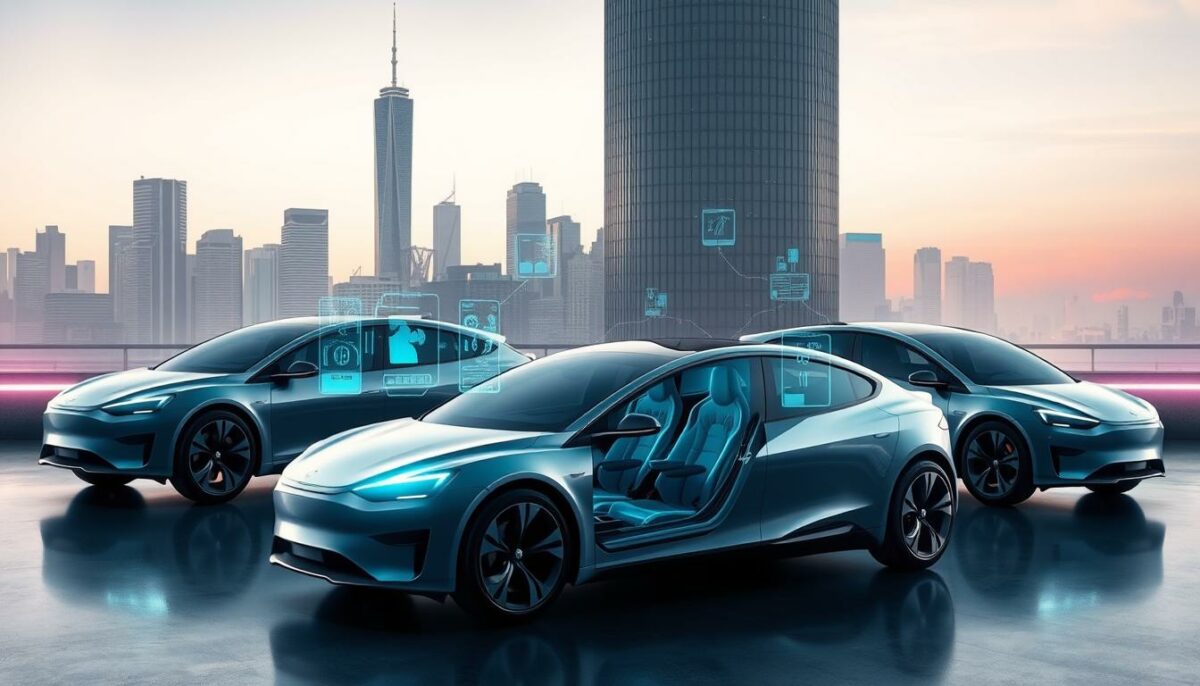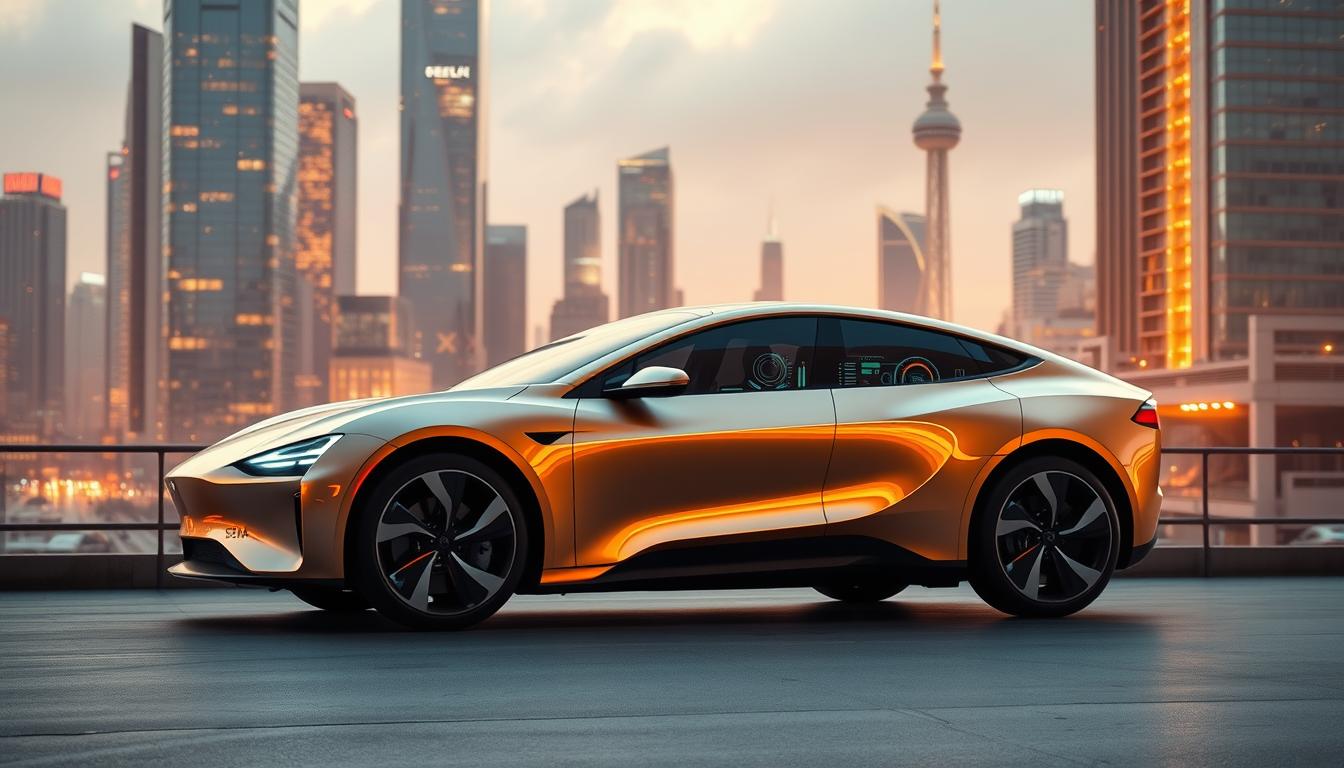We are excited to explore the world of electric vehicle technology and its significant impact on sustainable transportation. The automotive industry has undergone a substantial transformation in recent years, driven by advancements in electric vehicle technology and growing concerns about environmental sustainability.
At the heart of this revolution are the software features that power these vehicles, enabling them to operate efficiently, safely, and intelligently. As we delve into the world of electric cars, we will discover the importance of electric vehicle technology in promoting sustainable transportation and reducing our carbon footprint.
We believe that understanding the software features that power Tesla and other electric cars is crucial in appreciating the potential of electric vehicle technology to shape the future of sustainable transportation. In this article, we will discuss the top software features that are driving this revolutionary change and explore their role in creating a more sustainable transportation system.
Essential Software Features Powering Modern EVs
We are excited to explore the innovative software features that are revolutionizing the electric vehicle (EV) industry. These features are a testament to automotive innovation, making EVs more appealing and efficient. At the heart of modern EVs are advanced software systems that enhance performance, safety, and sustainability, contributing to green energy solutions.
Some of the key features include:
- Advanced Driver Assistance Systems (ADAS) for improved safety
- Battery management and range optimization for efficient energy use
- Over-the-air update capabilities for seamless software updates
- Intelligent energy recovery systems for minimizing energy waste
These features not only reflect the latest advancements in automotive innovation but also play a crucial role in promoting green energy solutions. By optimizing energy use and reducing waste, EVs are becoming an increasingly viable option for environmentally conscious consumers.
As we continue to push the boundaries of automotive innovation, we can expect to see even more exciting developments in the EV industry. With a focus on sustainability and efficiency, modern EVs are poised to make a significant impact on the future of transportation, driving the adoption of green energy solutions forward.
Comparing Software Features Across Leading Electric Vehicle Brands
We are now at a point where electric vehicle comparison is not just about the car’s design or range, but also about the vehicle software integration that enhances the overall user experience. As we delve into the world of electric vehicles, it’s essential to consider the unique software features offered by different manufacturers. For instance, Tesla’s over-the-air update capability is renowned for its seamless integration and frequent updates, making it a top choice for many electric vehicle enthusiasts.
When it comes to electric vehicle comparison, several brands stand out for their innovative software features. Some of the key players in the market include:
- Tesla, with its advanced Autopilot system and over-the-air updates
- Volkswagen, with its ID. series offering advanced battery management systems
- Nissan, with its e-Pedal technology and ProPilot Assist features
- BMW, with its iDrive system and range of connected services
As we compare these software features, it becomes clear that vehicle software integration plays a crucial role in the overall user experience. Whether it’s the ease of use, the frequency of updates, or the range of features offered, each brand has its strengths and weaknesses. By considering these factors, we can make informed decisions when it comes to choosing the right electric vehicle for our needs.

Ultimately, the key to a successful electric vehicle comparison is to consider the unique software features offered by each brand. By doing so, we can gain a deeper understanding of the vehicle software integration that drives these innovative vehicles, and make choices that align with our values and preferences.
The Future of Electric Vehicle Software Integration
As the automotive industry continues to evolve, the future of electric vehicle software integration looks promising, with potential advancements in areas like autonomous driving, enhanced battery technologies, and more sophisticated over-the-air update systems. The integration of artificial intelligence and the Internet of Things (IoT) is expected to play a significant role in shaping the next generation of electric vehicles, offering unprecedented levels of connectivity, safety, and efficiency.
Looking ahead, the future of electric vehicles will be defined by these advanced automotive technologies, which will not only transform the driving experience but also contribute to a more sustainable and environmentally friendly transportation sector. As we move forward, the focus will be on how these technologies can be harnessed to create vehicles that are not just electric but also smarter, safer, and more enjoyable to drive.

